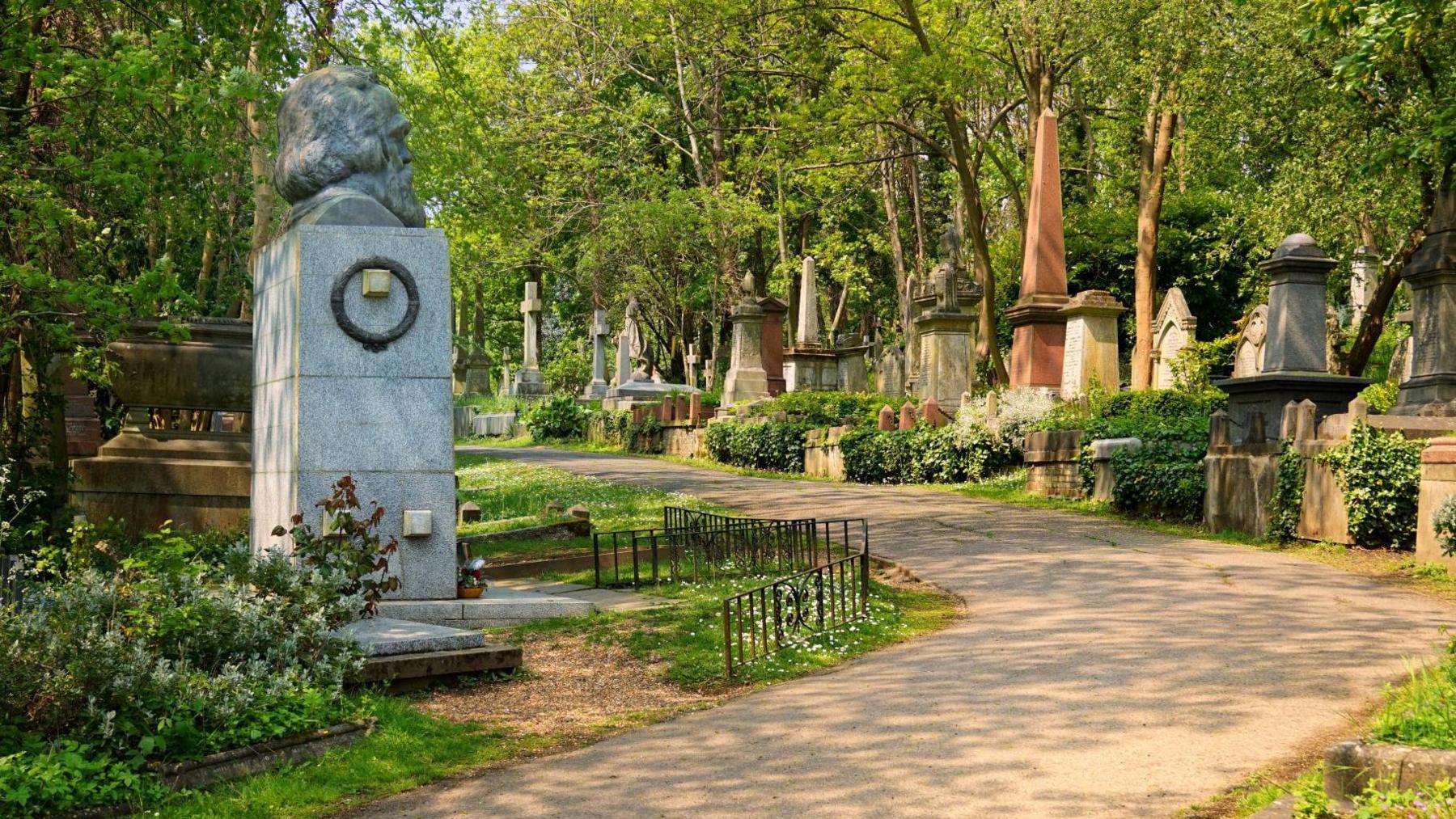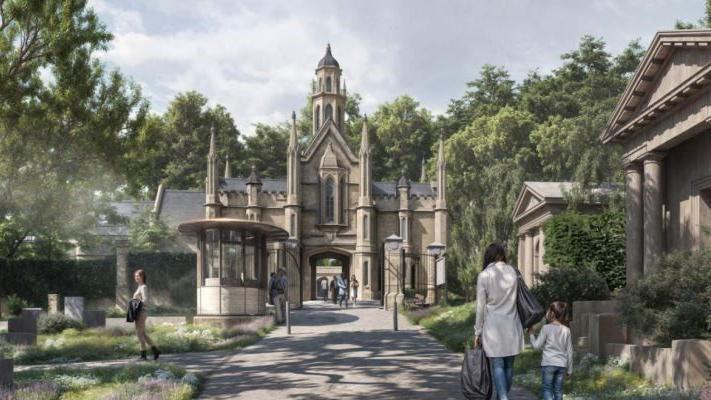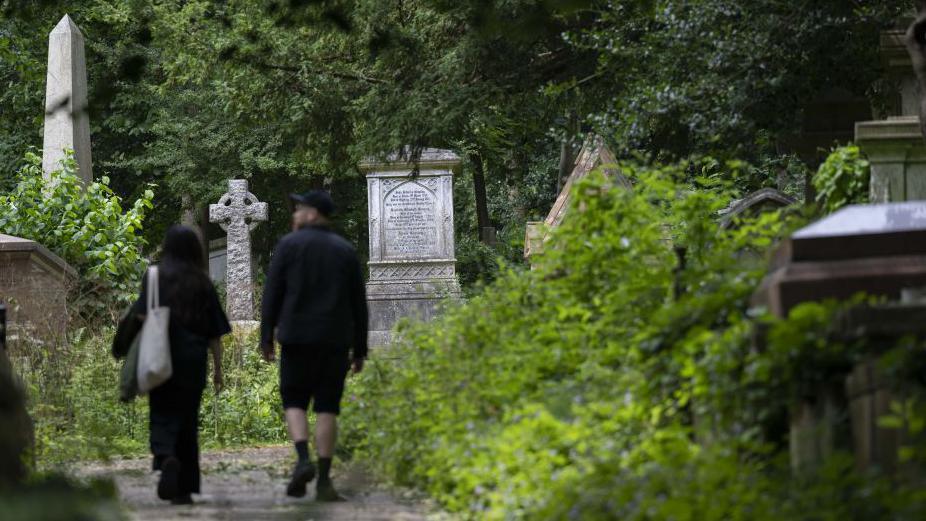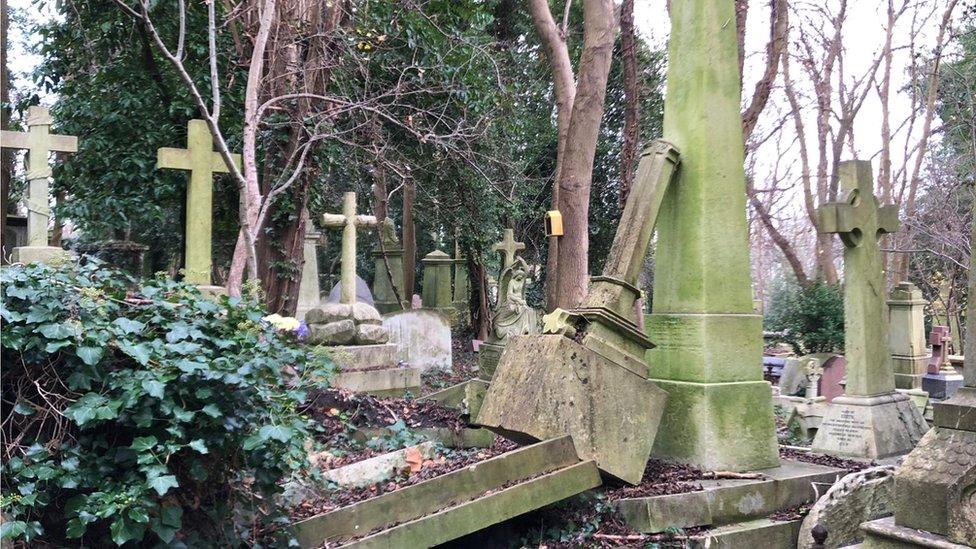Highgate Cemetery to undergo 25-year revamp

The graves of high profile figures such as Karl Marx attract a large number of visitors to the north London site
- Published
London's historic Highgate Cemetery is set for an £18m regeneration after the local authority approved plans to improve the site.
Camden Council has approved plans to overhaul the north London site as part of a 25-year "revitalisation" project to combat the effects of climate change and general decay, restore existing structures and construct new buildings.
One of capital's "magnificent seven" cemeteries, it attracts a large number of tourists wishing to visit the graves of famous figures buried there, such as Karl Marx and George Michael.
Approval for the plans comes after a row with grave owners over proposals for a new maintenance building, which were subsequently axed from the application.
The revamp is to include extensive landscaping works across the Grade I listed site, a new café and education centre, refurbishment of the chapel and the creation of new wildlife habitats.
The project also aims to conserve the Grade I listed Egyptian Avenue and Grade II listed Terrace Catacombs, restoring access to views of London and reopening the grand West Carriage Drive.
Trees believed to be dangerous or diseased are to be removed from the cemetery in a bid to restore biodiversity under the plans.
Highgate Cemetery opened in 1839. Its 53,000 plots include many celebrated individuals and is often nicknamed the "celebrity cemetery".
Painter Lucian Freud, novelist George Eliot, scientist Michael Faraday, and Russian dissident and spy Alexander Litvinenko are among those interred there.

The plans include work to maintain the chapel
The approval of the plans follows a row over proposals to build a new block for toilets and gardeners facilities on a mound near several burial spaces.
Families of the deceased, including actor Bertie Carvel, whose mother was buried there, were opposed to the building, which was likened to a "bunker".
Pam Miles, the widow of actor Tim Pigott-Smith, warned she would exhume the remains of her husband buried there and demand the cemetery pay the costs.
Many also said they felt the cemetery's bosses had not listened to them and believed they were prioritising tourists instead.
In August, the Friends of Highgate Cemetery Trust scrapped the gardeners' block from the redevelopment, saying it had "listened carefully to the views of grave owners".
Listen to the best of BBC Radio London on Sounds and follow BBC London on Facebook, external, X, external and Instagram, external. Send your story ideas to hello.bbclondon@bbc.co.uk, external
- Published21 December 2024

- Published11 December 2020
